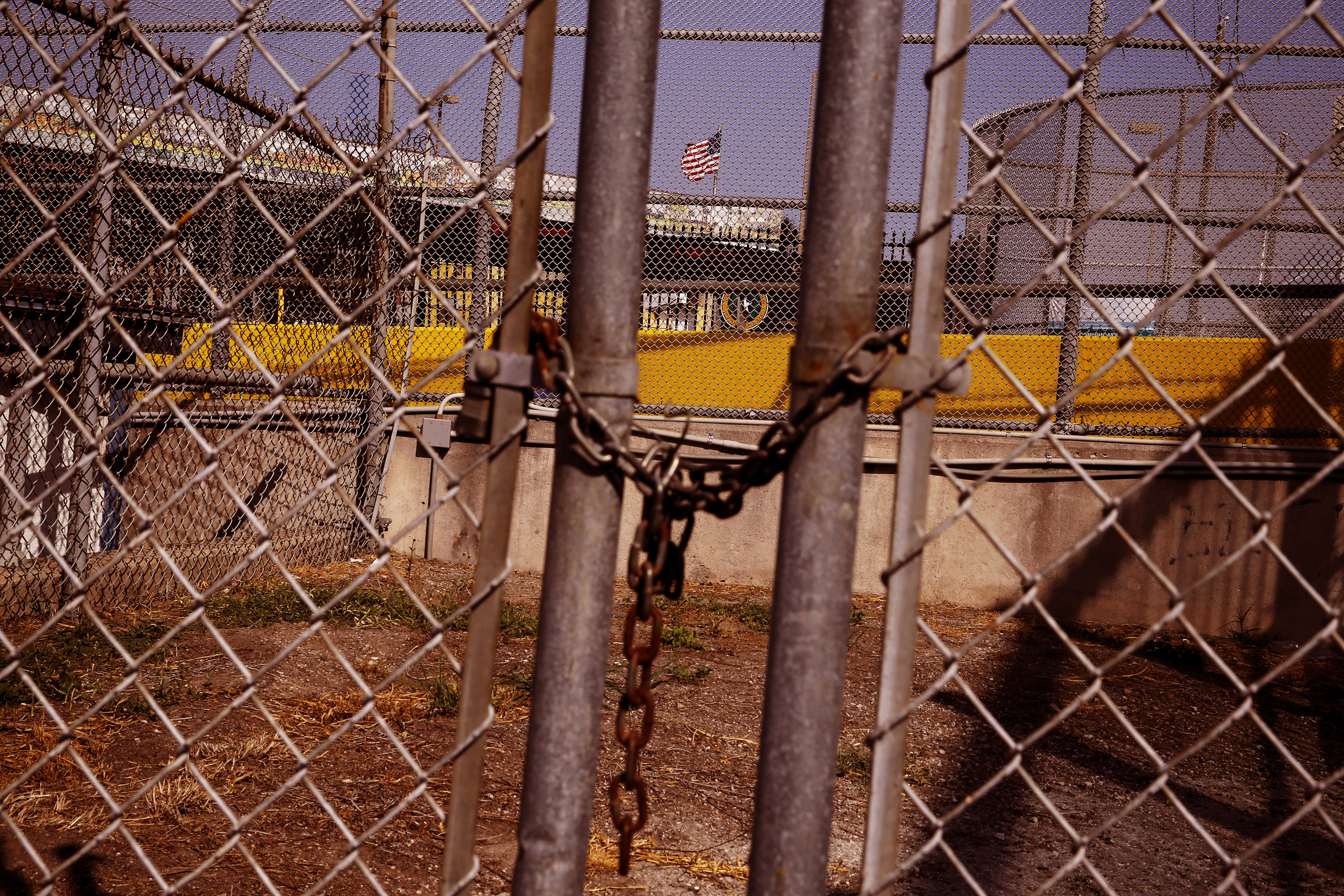How America's political and economic elite gave birth to the Trump campaign
The rise of The Donald is just one consequence of our immigration mess


"Trump talks about Mexicans the way anti-Semites talk about Jews."
There's a lot of truth in that Christopher Hayes tweet from the night of the first Republican debate. Ominous (and unsubstantiated) talk of rapists and murders streaming over the southern border, demonization of "anchor babies," calls to end birthright citizenship — Donald Trump's surging campaign for president has brought xenophobic fears and hostility into the political mainstream in a big way. No one should be surprised that just a couple of clicks to Trump's right, Iowa radio personality Jan Mickelson has begun to muse with his listeners about whether the U.S. should enslave undocumented immigrants who fail to leave the country.
But political commentators would be wise to avoid sliding too quickly into denunciations of Trump's supporters and his campaign for falling prey to fascism. Yes, their rhetoric is often illiberal and sometimes blatantly racist. But that doesn't mean their concerns deserve to be dismissed entirely. Trump's supporters have reasons for their views, and some of those reasons are worth taking seriously.
The Week
Escape your echo chamber. Get the facts behind the news, plus analysis from multiple perspectives.

Sign up for The Week's Free Newsletters
From our morning news briefing to a weekly Good News Newsletter, get the best of The Week delivered directly to your inbox.
From our morning news briefing to a weekly Good News Newsletter, get the best of The Week delivered directly to your inbox.
Anti-immigrant sentiment has been on the rise (in intensity if not always in sheer numbers) throughout the Western world in recent years. The severe economic downturn that began in 2008 and the painfully slow recovery that followed has no doubt helped to fuel it. But so has a visceral frustration at what many believe to be a failure of representative institutions to respond to popular discontent about the changing ethnic and economic character of Western nation states over the past several decades.
These institutions have been sluggish to respond to this discontent because two (sometimes overlapping) factions of our political and economic elite strongly support high levels of immigration — or at least oppose doing very much to stop it.
One of the factions — the business class and its neoliberal champions in government, think tanks, and NGOs — believes in a free-flowing international labor market that treats borders as superfluous.
The other faction — liberal lawyers, activists, intellectuals, journalists, academics, members of the clergy, and (once again) NGO staffers — has a deep-seated moral suspicion of nations and political boundaries in general. Why should an American count for more than a Mexican who crosses the border into the United States? Shouldn't a refugee fleeing violence in North Africa enjoy full political rights upon setting foot in the European Union? Don't all human beings deserve to be treated equally under the law? Isn't opposition to such equality an example of bald-faced racism?
A free daily email with the biggest news stories of the day – and the best features from TheWeek.com
Both of these factions make deeply anti-political assumptions, denying the legitimacy of particularistic affiliations and dismissing the intuition that citizenship in a particular political community is a distinction that should not be open to all comers. The first faction denies these fundamentally political distinctions in the name of economic universalism; the second denies them in the name of moral universalism.
Universalism might be the gold standard of truth in economics, moral philosophy, and in every field of inquiry that aims to model itself on the natural sciences. But politics is always about how these particular people choose to govern themselves. Which means that politics can never be conducted entirely in universalistic terms.
It would be one thing if we had reason to believe that the human race was evolving in the direction of a universal, homogenous state in which there would be no one "outside," and therefore also no one "inside," a single political community of worldwide extent. The trouble is that there is little evidence that politically based solidarity is withering away. On the contrary, the more that economic and moral universalists get their way in the policy arena, the more they inspire a radically particularistic (nationalistic, often race-based) backlash.
That describes exactly what's been happening in the United States (and Europe) in recent years. Not only has the federal government been half-hearted at policing the nation's southern border, but millions of individuals and business owners have flouted the nation's immigration laws by hiring undocumented workers, most of them below minimum wage. (I wonder: Will the dramatic increases in the minimum wage being enacted and contemplated around the country alleviate or exacerbate this problem?)
The combination of a porous border and abundant jobs is what keeps attracting immigrants to risk crossing into the United States. Then once they're here, the moralists deny the legitimacy of finding and deporting them. That creates something close to an open-border policy.
A majority of American citizens may support a generally liberal immigration policy — I certainly do — but there's no evidence they think the border should be effectively abolished. Those for whom this is an important issue are not wrong to see our drift in that direction as, in part, a failure of democratic representation.
And when representation fails, demagogues thrive, promising to serve as something more than a mere representative — something more like a living embodiment of the people's will.
Enter Donald Trump.
The magnate from Manhattan is still a long-shot to land the Republican nomination, let alone to win the general election against a halfway competent Democrat. But the passions he's drawn on and stirred up are unlikely to disappear. And that's where the dysfunction of our political system rightly inspires serious concern.
Everybody in Washington understands perfectly well what the solution will have to be — some combination of much more stringent border controls with a path to citizenship for those already here. This is precisely the kind of deal that Congress (led by GOP presidential hopeful Marco Rubio) worked hard, and failed, to pass after the 2012 election. It went down in large part because those who care about the issue no longer trust the federal government to impose the crucially important first half of the deal (enforcement of the border). They fear, and not without reason, that the path to citizenship will be enacted with enthusiasm while the border controls will be half-hearted — a combination that would likely inspire even more people to come to the U.S. illegally.
That leaves us stuck: knowing what we need to do but unable to get it done, with some of us tempted to treat a billionaire snake oil salesman as the nation's savior.
It's unclear how to go about righting our course. But it certainly couldn't hurt for the moral universalists among us to acknowledge that their contempt for particularistic political attachments is helping to provoke the very xenophobic passions they rightly decry.
Damon Linker is a senior correspondent at TheWeek.com. He is also a former contributing editor at The New Republic and the author of The Theocons and The Religious Test.
-
 Ghislaine Maxwell: angling for a Trump pardon
Ghislaine Maxwell: angling for a Trump pardonTalking Point Convicted sex trafficker's testimony could shed new light on president's links to Jeffrey Epstein
-
 The last words and final moments of 40 presidents
The last words and final moments of 40 presidentsThe Explainer Some are eloquent quotes worthy of the holders of the highest office in the nation, and others... aren't
-
 The JFK files: the truth at last?
The JFK files: the truth at last?In The Spotlight More than 64,000 previously classified documents relating the 1963 assassination of John F. Kennedy have been released by the Trump administration
-
 'Seriously, not literally': how should the world take Donald Trump?
'Seriously, not literally': how should the world take Donald Trump?Today's big question White House rhetoric and reality look likely to become increasingly blurred
-
 Will Trump's 'madman' strategy pay off?
Will Trump's 'madman' strategy pay off?Today's Big Question Incoming US president likes to seem unpredictable but, this time round, world leaders could be wise to his playbook
-
 Democrats vs. Republicans: which party are the billionaires backing?
Democrats vs. Republicans: which party are the billionaires backing?The Explainer Younger tech titans join 'boys' club throwing money and support' behind President Trump, while older plutocrats quietly rebuke new administration
-
 US election: where things stand with one week to go
US election: where things stand with one week to goThe Explainer Harris' lead in the polls has been narrowing in Trump's favour, but her campaign remains 'cautiously optimistic'
-
 Is Trump okay?
Is Trump okay?Today's Big Question Former president's mental fitness and alleged cognitive decline firmly back in the spotlight after 'bizarre' town hall event



